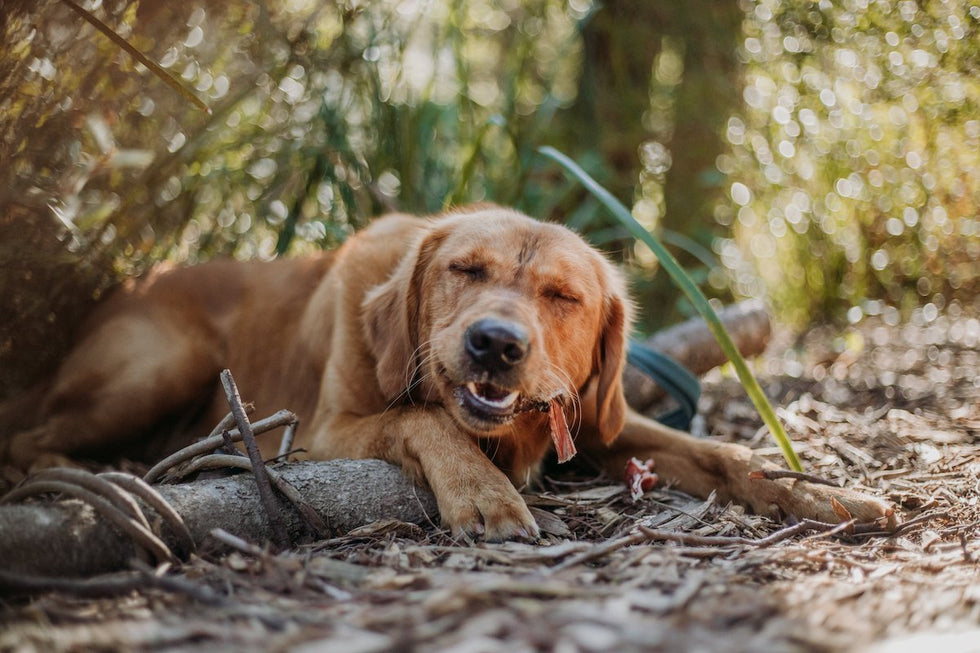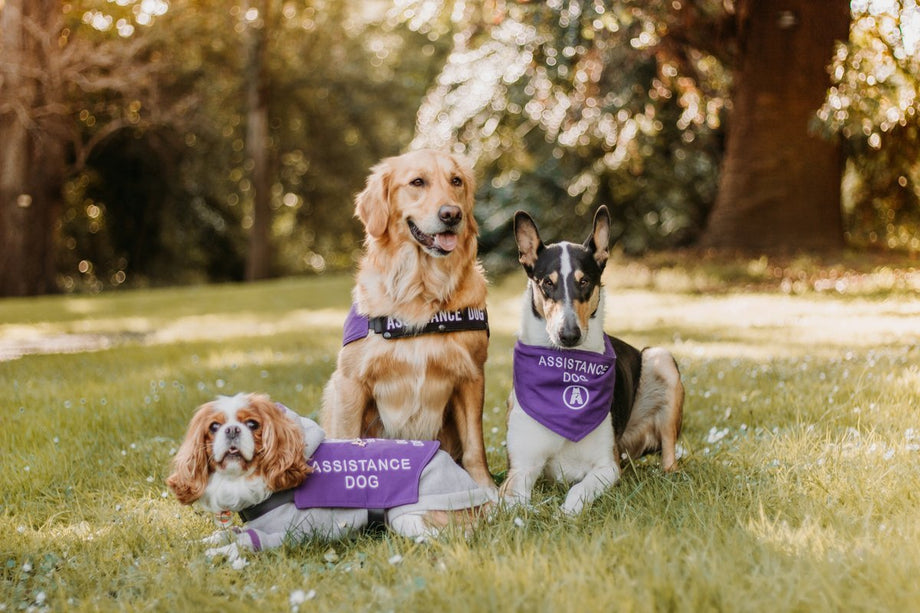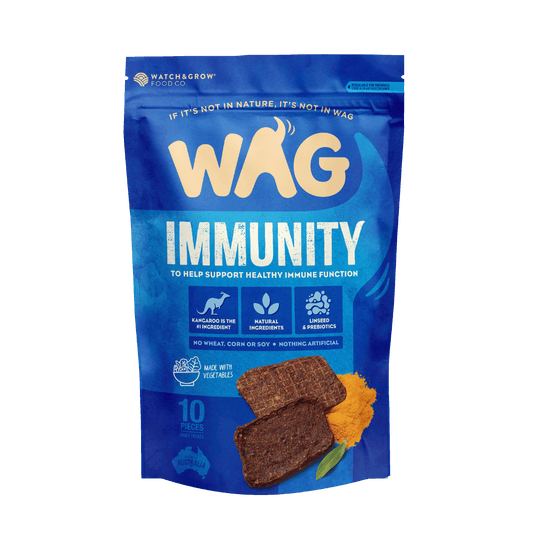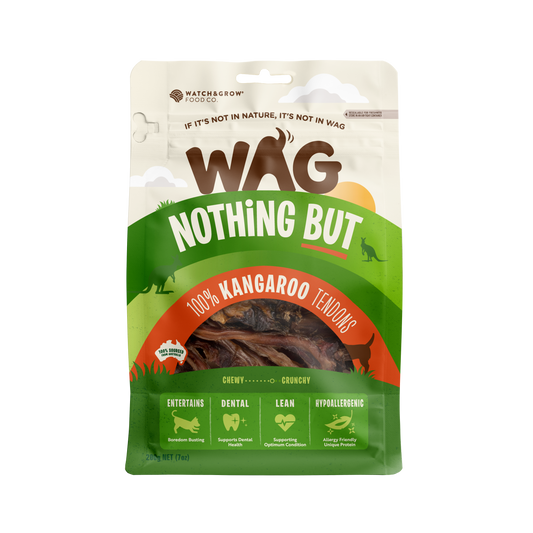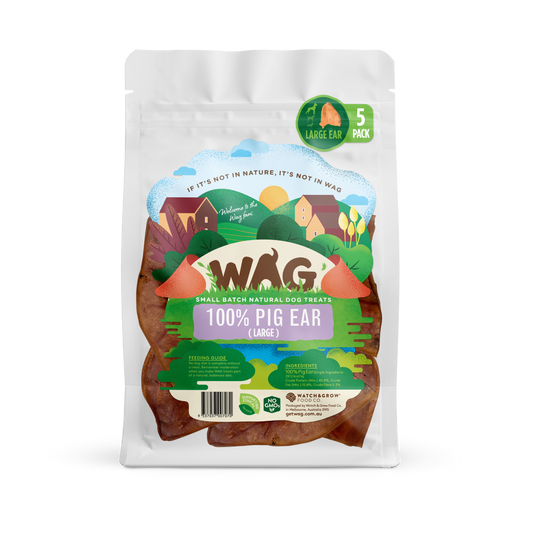While doggos of all walks of life can help their owners thrive day-to-day, there are those of us who need more support – whether it be psychiatric, physiological or therapeutic. For them, there’s assistance dogs: dogs trained to perform the specific and valuable tasks that improve the lives of their owners each and every day.
We’ve teamed up with Revolutionary Assistance Dogs (RAD) to discuss the working-dogs that are making differences to the lives of folks experiencing disability, mental illness and mobility concerns every single day. With their specially trained tasks designed to alleviate their owner’s symptoms (and conditions), assistance dogs can transform the lives of people who previously might not have been OK.

RAD Inc. is an association with an admirable mission: supporting disabled handlers as they train their own assistance dogs, increase public awareness, and navigate the difficult space of discrimination in public spaces. Their team works diligently to educate schools, businesses, hospitals and workplaces about the innumerable ways that assistance dogs can enrich the lives of their owners (termed ‘handlers’).
With associations like RAD working nationwide to spread education, awareness and support about assistance dogs, we’re moving towards a future where not only is it OK to not be OK – it’s OK to find the way that will make you OK.
We went straight to the source for all the pressing and important questions about assistance dogs, their handlers, and how our best mates can save lives. We spoke to three members of RAD – Grier, Zaehl and Amy – who, thanks to the unwavering support of their assistance dogs, have their lives enriched and improved each and every day.
What is an assistance dog?
An assistance dog is a highly-trained dog that performs tasks that mitigate an individual’s disability under the Disability Discrimination Act (DDA), explains Grier, who has an assistance dog named Marlo.
Assistance dogs aren’t limited to one size, shape or breed, she says, ‘but they all provide immeasurable help to their handler’. An assistance dog can accompany their handler anywhere the general public is allowed and are afforded access to places that pets generally are not.
Are all assistance dogs the same?
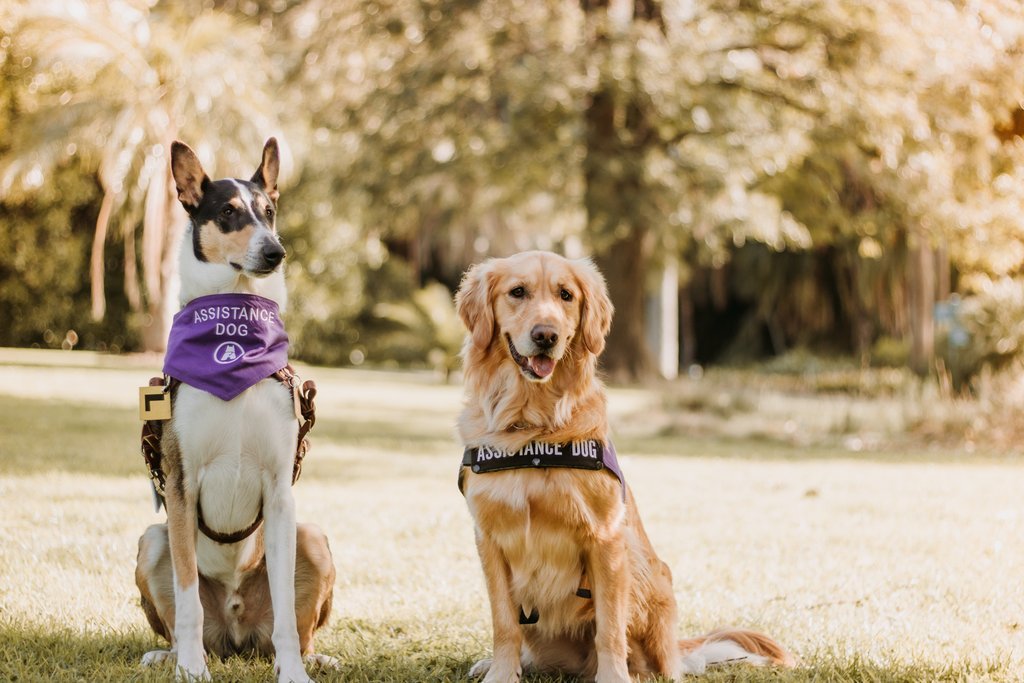
No two assistance dogs from RAD Inc. are the same, each providing unique and invaluable support to their handler. Grier describes her 2-year old Golden Retriever as ‘feisty, bossy and energetic,’ whose greatest passion in life (when off duty!) is tennis balls, the beach, and adventuring.
Zaehl explains how their 18-month old Smooth Collie, Flynn, was the perfect choice for them – energetic enough to keep up with farm life but adaptable to when they wasn’t feeling their best, capable of ‘zonking out’ when need be.
Lastly, Amy describes her purpose-bred Standard Poodle, Lew, named after ‘a place
What type of tasks does an assistance dog provide?
Assistance dogs are capable of providing a vast amount of services, providing they mitigate the disabilities of their handlers. These tasks can be psychiatric, like responding to dissociative episodes, interrupting panic attacks and disruptive anxious behaviours. They can also be physical, like doing crowd-control in public spaces, offering tactile stimulation, and providing ‘deep pressure therapy,
Amy, who experiences a rare and immobilising condition called fibromyalgia, explains the way Lew’s tasks can mitigate her disability: ‘He’ll help elevate my legs when I need to lie down and slow my heart-rate,’ she says, ‘
How can an assistance dog change, influence or improve daily life

Assistance dogs can transform the lives of their handlers in ways the general public might never imagine. Before Flynn came along, Zaehl found it impossible to go into community spaces alone, regularly experiencing debilitating paranoia, panic attacks and sensory overload.
But thanks to Flynn’s influence and specially-trained tasks, ‘I’ve been able to have more independence, stability, security, and to achieve new things like getting my license and travelling alone,’ she says.
Many medical health professionals support the use of assistance dogs to mitigate disabilities, and can use them to provide treatment in management plans. Amy had attempted what felt like endless solutions to better her health, each with very little success. But according to her psychologist and general practitioner, ‘Lew has been the most successful treatment for all my ailments’. And it’s not only his valuable tasks: ‘the fact that he’s a living creature that has built a relationship with me, helping me through my illnesses, makes the fight so much easier.’
What does ‘R U OK’ Day symbolise to an assistance dog handler?
R U OK Day can mean something different to everybody – and that’s what’s so great about it.
But to assistance dog handlers, it can be a vital reason to celebrate and encourage communication around mental health. Grier’s illness isn’t visible, so the majority of people see her assistance dog and assume she’s training her for someone else. But ‘just because you can’t see someone struggling,’ she says, ‘it doesn’t mean they’re okay. R U OK Day encourages people to reach out to others, regardless of how ‘fine’ they may seem.’
‘Every person needs to be asked if they’re OK,’ Amy continues, highlighting how important R U OK Day can be for in supporting individuals with ‘invisible illnesses and demons’. Zaehl agrees, emphasising the ‘mental illness, feelings of depression, stress, and anxiety, and many other invisible illnesses are not always able to be seen.’
If you’d like to support Revolutionary Assistance Dogs in their mission, visit www.raddogsinc.com.au/donate
Shop the Recipe
WAG Team
Up Next
Puppy teething: what you need to know
